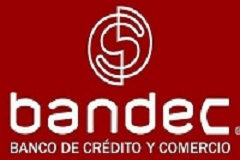Integration of environmental activities in the accounting system of Bandec Guantánamo branches
Keywords:
environmental activities, accounting, banking institutions, accounting information, environmentAbstract
The progressive deterioration of environmental conditions has led to all sectors of society becoming aware of environmental conservation as an alternative for survival. In this context, in Cuban financial institutions and, specifically, in banking activity, the incorporation of the environmental dimension as a strategic variable in its management process is a pressing need. The research aims to design a procedure for the integration of environmental activities in the accounting information of the branches of the Provincial Delegation Bandec Guantanamo for the strengthening of relevant information. In the development of the thesis a set of theoretical and empirical methods were used, as well as research techniques that allowed the recognition, registration and evaluation of environmental activities in these institutions.
References
Dalkey, N. C. y Helmer, O. (1963). An experimental application of the Delphi method to the use of experts. Management Science. 9, 3, 458-467.
Martínez Pulido, Viviana A.; Gómez Villegas, M. (2015). La contabilidad y los conflictos ambientales en el sistema financiero: estudio de caso en el sector bancario argentino. Revista Cuaderno de Contabilidad, Vol. 16 (41): 281-306 / mayo-agosto 2015, Bogotá, Colombia.
Ministerio de Finanzas y Precios (2019). Resolución no. 925/2018 Norma Específica de Contabilidad No. 11 “Contabilidad Medioambiental” (NEC No. 11). Gaceta Oficial de la República de Cuba. Ministerio de Justicia. GOC-2019-231-O15.
Ministerio de Finanzas y Precios (2019). Resolución no. 935/2018 Norma Específica de Contabilidad No. 12 “Contabilidad de Gestión” (NEC No. 12). Gaceta Oficial de la República de Cuba. Ministerio de Justicia. GOC-2019-231-O15.
Ortíz, M. (2012). Norma contable medioambiental para el sector agrícola. Caso Región Costa Sur, Jalisco, México. (Tesis en opción al grado científico de Doctor en Ciencias Contables y Financieras). Universidad de Camagüey, Camagüey, Cuba.
Partido Comunista de Cuba [PCC]. (2016). Lineamientos de la Política Económica y Social del Partido y la Revolución. VII Congreso del PCC. Cuba. La Habana: Cuba, Editora Política.
Partido Comunista de Cuba [PCC]. (2016a). Conceptualización del Modelo Económico y Social Cubano de Desarrollo Socialista. Cuba. La Habana: Cuba, Editora Política.
Salas Fuente, H. (2015). “Dimensión ambiental en el sistema financiero de la información”. En Revista Cuba investigación económica, No. 1-2015 páginas 104-125, ISSN 1026-485X, del Instituto Nacional de Investigaciones Económicas (INIE), certificada por el CITMA.
Salas Fuente, H. (2016). Índices ponderados de ecoeficiencia y ecoeficacia desde la Contabilidad de Dirección Estratégica Medioambiental. Tesis presentada en opción al grado científico de Doctor en Ciencias Contables y Financieras. Universidad de Camagüey, Camagüey, Cuba.
Salas Fuente, H.; Zequeira Álvarez, M. E. (2016). Procedimiento para el diseño de índices ponderados de ecoeficiencia y ecoeficacia empresarial. Revista electrónica “Observatorio de la Economía Latinoamericana”, (ISSN 1696-8352), indexada en IDEAS-RePEc, LATINDEX, número de diciembre 2016: http://www.eumed.net/cursecon/ecolat/cu/2016/ecoeficiencia.html y http://hdl.handle.net/20.500.11763/cu16ecoeficiencia.
Thomas Pérez, J.; Salas Fuente, H.; Zequeira Álvarez, M. E. (2017). Evaluación de la ecoeficiencia en instituciones bancarias cubana. Revista electrónica “Revista Caribeña de las Ciencias Sociales”, (ISSN: 2254-7630), indexada en IDEAS-RePEc, Doaj, LATINDEX, número de abril de 2017: http://www.eumed.net/rev/caribe/2017/04/ecoeficiencia-bancos-cuba. Html.

Downloads
Published
How to Cite
Issue
Section
License

This work is licensed under a Creative Commons Attribution-NonCommercial-NoDerivatives 4.0 International License.
- Sending a contribution to the Cuban Magazine of Finance and Prices (RCFP) implies a non-exclusive assignment of rights, which includes: Reproduce the Article in whole or in part and communicate the Article to the public in print or electronic format, combined or not with the works of third parties, such as by making the Article available to the public via the Internet or any other network, as part of a database, with on-line or off-line access, for use by third parties; Translate the Article into other languages and release the translation to the public; Create adaptations, summaries, or excerpts of the Article and other derivative works thereof, and exercise all of your rights in such adaptations, summaries, excerpts, and derivative works; Include the Article, either in its translated, adapted or summarized version, totally or partially, in a computerized database and make it available to third parties; Include the Article, totally or partially, either in its translated, adapted or summarized version, in a selection or compilation of texts; Rent or lend the Item to third parties; Reproduce the Article by means of reprography, without prejudice to legal limitations.
The Author of articles published in the Cuban Magazine of Finance and Prices (RCFP) may exercise the following rights:
- Reproduce the Article, totally or partially, and disseminate its content or make it available to the public, in printed or electronic format, as part of a teaching content or as a compilation, for use in the academic or research field in the institution to the one to which the Author belongs or in those institutions to which he belongs.
- Publish the Article on the Internet or authorize the Author's institution (or any other appropriate organization) to do the same, immediately from the date of publication of the Article in the journal: within the institution's closed network (p. eg, the intranet); or in publicly accessible institutional repositories or centrally organized repositories, provided that a link to the Article is included on the journal's website.
- Grant to the Author's own institution (or any other appropriate organization) the authorization to reproduce the Article in order to prevent its deterioration or, if the original is in an obsolete format or the technology to use it is not available, in order to ensure that the Article remains available for teaching or research purposes;
- Present the Article at a meeting or conference, and distribute copies of the Article to those attending the event.
- Grant end users at the Author's own institution (or any other appropriate organization) permission to copy, use, transmit, and publicly perform the work and to create and distribute derivative works.



